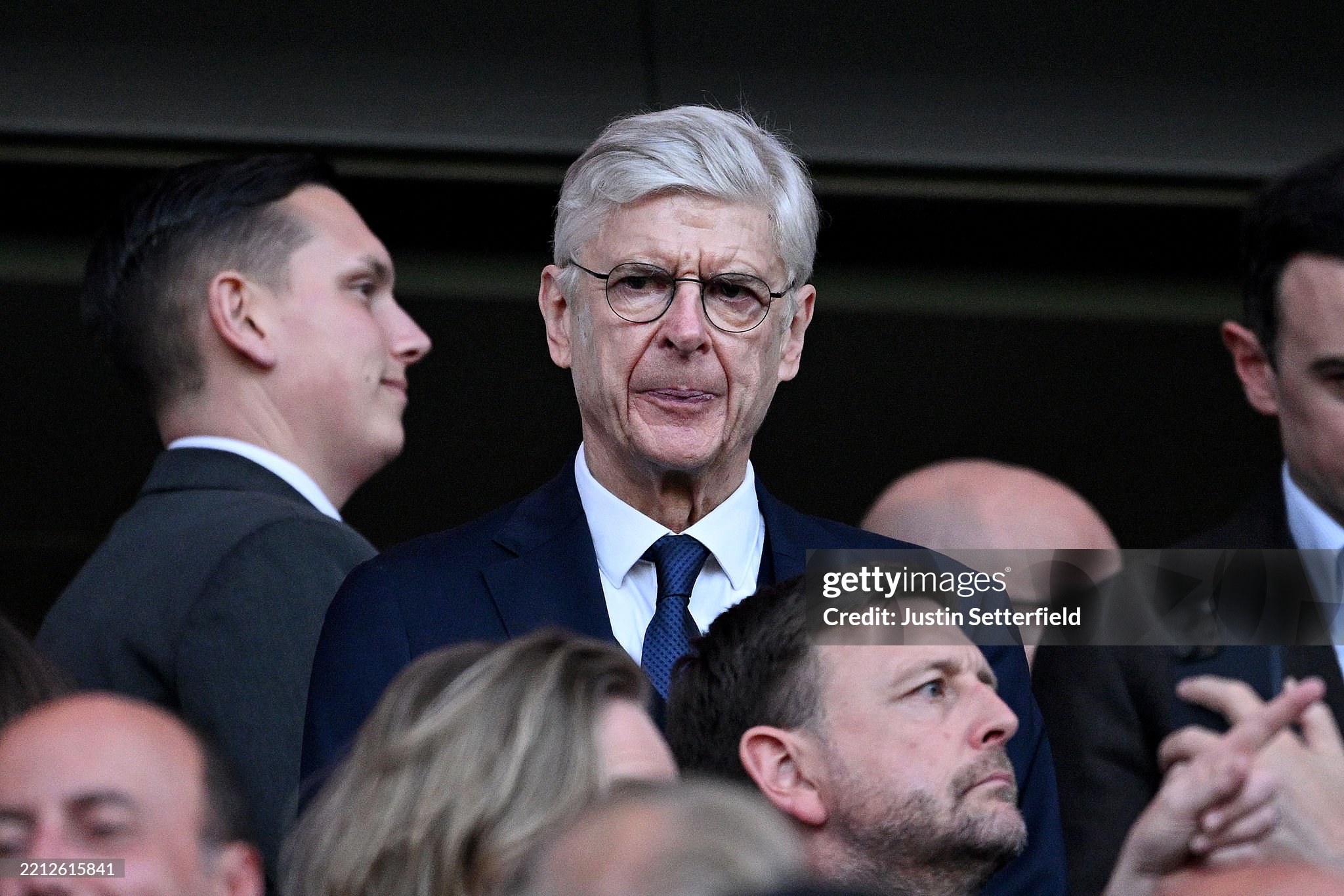After the first legs of the Europa League semi-finals, there is a strong chance that Manchester United and Tottenham Hotspur will meet in the final in just over two weeks. The winner will receive the trophy and a place in the Champions League. Arsène Wenger believes that is not fair.

The former legendary manager Arsène Wenger has stirred debate once again with his outspoken views on European qualification rules, particularly concerning the Champions League.
In an interview with beIN Sports, Wenger voiced his disapproval of the possibility that clubs like Manchester United or Tottenham Hotspur both of whom have underperformed in the Premier League this season could still qualify for Europe’s elite competition by winning the Europa League.
“No, in my opinion, they should qualify for the Europa League instead,” Wenger stated plainly. “Especially if you're from a country that already sends five clubs to the Champions League. I think UEFA really needs to take a closer look at that.” His comments reflect growing concerns among purists of the game that the merit-based foundation of European competitions is being eroded by backdoor entries.
This season, due to the excellent performance of English clubs in Europe, England has secured an additional (fifth) spot in the Champions League for the 2024–25 campaign. That means, in theory, even if Manchester United or Tottenham were to finish outside the top 10 domestically, they could still join Europe’s elite next season simply by winning the Europa League. Wenger finds this unfair, especially when other clubs have battled all season in the Premier League for a top-four finish.
Currently, United and Spurs languish in 15th and 16th place in the Premier League table, a far cry from the form and consistency traditionally required to qualify for European football. Neither club has, at any stage this season, been realistically in contention for a top-six finish. Their inconsistent performances, defensive struggles, and managerial instability have made this one of the most disappointing domestic seasons for both clubs in recent memory. And yet, they are both just one step away from reaching a Europa League final that could hand them a golden ticket into the Champions League.
Meanwhile, at the top of the Premier League, Liverpool has already secured its place in next year’s Champions League as champions. Behind them, the race is intense, with Arsenal, Manchester City, Newcastle United, Chelsea, Nottingham Forest, and Aston Villa all still fighting for the remaining four Champions League spots. These are clubs that have maintained a relatively high level of performance throughout the season, reflecting Wenger’s belief in earning qualification through consistency.
Wenger’s views carry weight, not only because of his experience and intellect but also due to his history with the Champions League. During his 22-year tenure at Arsenal, the Frenchman became synonymous with European qualification. From the late 1990s through to the mid-2010s, Wenger guided the Gunners to the Champions League for 17 consecutive seasons a remarkable record of consistency achieved solely through league performance. In his view, Europe’s top competition should remain a reward for that kind of long-term excellence.
The Frenchman has also served as FIFA’s Chief of Global Football Development since leaving Arsenal and has often contributed to discussions around the structure and fairness of international competitions. His suggestion that UEFA needs to reassess the rules highlights a broader issue with how Champions League spots are allocated especially in a footballing era where commercial interests and TV revenue are becoming increasingly influential in determining access to top-tier tournaments.
While UEFA justifies the rule allowing Europa League winners into the Champions League as a way to maintain prestige and competitiveness in its secondary tournament, critics like Wenger argue it can undermine the value of domestic leagues. Teams might prioritize European knockout matches over league games, knowing a single trophy can open the door to massive financial and sporting rewards.
Should United or Spurs go on to lift the Europa League trophy, they would enter the Champions League group stage next season not only potentially displacing a more consistent team but also enjoying windfalls of revenue and exposure. This could have significant implications for financial fair play dynamics and sporting integrity, another concern Wenger has hinted at in past discussions.
As the debate grows, UEFA may come under pressure to revisit the qualification mechanics, especially if the scenario Wenger warned against comes to pass. Until then, the football world watches closely, as two struggling giants with poor league form but undeniable European pedigree remain just one good performance away from rejoining the elite.







